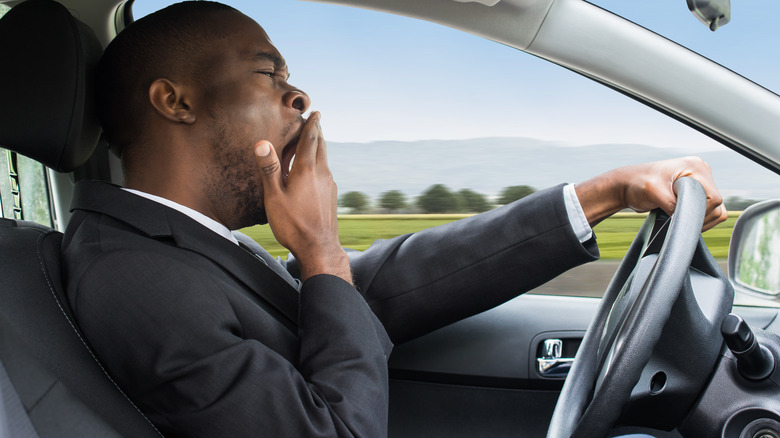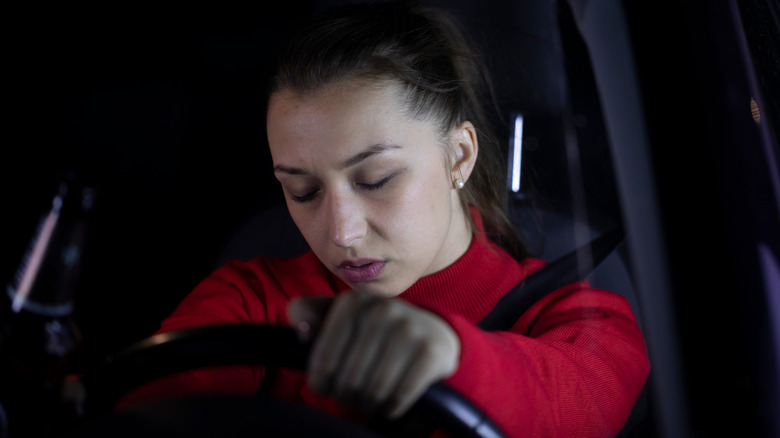Can Driving Make You Tired?
According to the Centers for Disease Control and Prevention (CDC), driving while tired hinders us to nearly the same degree as driving while impaired or intoxicated. Referred to as "driver fatigue," the decrease in reaction time that occurs from lack of sleep can be incredibly dangerous and makes us more prone to accidents. However, the kind of fatigue we're referring to isn't one caused by poor sleep, but rather, caused by driving itself. Even if we've had a thorough night's rest, is it possible that the act of driving can make us tired?
While you may have already heard of driver fatigue, you may not have heard of a phenomenon known as "highway hypnosis." Per Healthline, highway hypnosis is a trance-like state that drivers fall into due to the monotony of long roads and prolonged periods of brain inactivity. As a result, the body switches into autopilot mode, and drivers may experience wandering thoughts, brain fog, excessive blinking, heavy eyelids, and yes — sleepiness.
Drowsiness can set in within 15 minutes of driving
By assessing steering wheel movements, researchers from a 2003 study published in Accident Analysis & Prevention analyzed how visual roadside stimulation — or lack thereof — affected 56 driver participants. They found that drivers demonstrated greater rates of fatigue when driving on monotonous roads that lacked visual stimuli when compared to drivers who drove along roads with more visually diverse environments.
Not only can the surrounding environment make us tired while driving, but research has shown that the physical lull of the car can as well. In a 2018 study published in Ergonomics, researchers examined heartbeat changes in 15 participants who engaged in two 60-minute virtually simulated driving tasks. In one simulation, drivers experienced low-frequency body vibrations emitted from the car seat. In the other simulation, no vibrations were experienced. It was found that drowsiness began to set in within 15 minutes of driving in those who experienced vibrations. Levels of drowsiness increased significantly by the 30-minute mark and peaked at one hour (via RMIT University).
How to avoid highway hypnosis
Furthermore, Professor Stephen Robinson, the chief investigator of the 2018 study, explained via RMIT University how one's quality of sleep seems to have little impact on results, stating, "Our study shows steady vibrations at low frequencies — the kind we experience when driving cars and trucks — progressively induce sleepiness even among people who are well rested and healthy."
Researchers hope the study findings will influence the development of future car safety features. "To improve road safety, we hope that future car seat designs can build in features that disrupt this lulling effect and fight vibration-induced sleepiness," said Robinson (via RMIT University).
In the meantime, Healthline suggests drivers make conscious efforts to stay alert such as by drinking caffeine, playing loud music, talking to yourself, or rolling down windows. In addition, positioning your seat upright rather than at a relaxed angle can also help maintain alertness. Refrain from using cruise control and remember to stop every hour or so to move your body.



